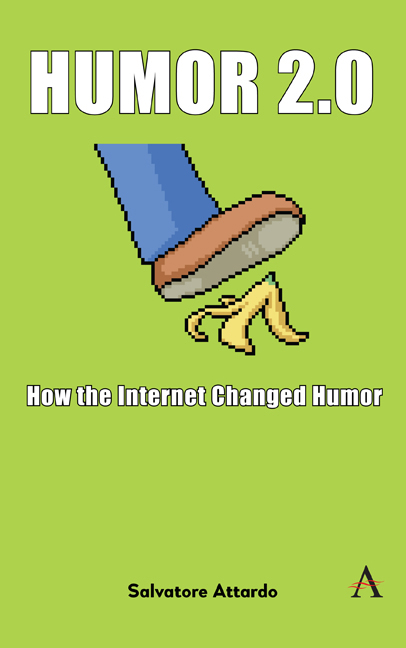Conclusion: Plus Ça Change…
Published online by Cambridge University Press: 28 February 2024
Summary
We started out this book with a question: How has the internet changed humor? We can now answer with a paradox: the more it changes, the more it stays the same. At a deep level, we know that humor is the same across cultures and across times. The grand theories of incongruity, superiority and release capture these universal traits of human nature: we like unexpected, surprising things that make us feel better about ourselves and we like to play, free of the stresses of life. Of course what any of those things mean, for a given culture and a given time, is up for grabs: what specifically is unexpected or what counts as play, for example, are culture-driven constructs. Each culture determines what things are OK to be made fun of and what things are out of bounds.
So, of course, we could have predicted that humor in the abstract sense remains unchanged, but that what our culture in the first two decades of the new millennium finds appropriate as the object of humor has changed. The time has come to review these changes.
The biggest one is probably the emergence of the humorous internet meme. In a sense, of course, humorous memes have always existed (jokes, comedy genres, etc.). What has changed however, is the participatory culture of social media, the advent of the produsers and the blurring of the professional/amateur boundary. When memes, videos, witty tweets, cartoons, music parodies and generally speaking “media content” are produced and immediately disseminated by individuals with no training and sometimes even less talent, the result is a steady stream of content, often devoid of any quality. However, social media resolves the problem of the substandard quality of material by enacting a most effective selection method, that is, by making the one true marker of success, virality, the result of a very large number of individual decisions (each produser has to decide whether to replicate or to remix each individual item they come across).
The second biggest difference is the mainstreaming of cringe humor. The fact that the experience of mirth may be mixed with the experience of embarrassment, be it personal or vicarious, is clearly a defining characteristic of humor in the age of the internet and social media.
- Type
- Chapter
- Information
- Humor 2.0How the Internet Changed Humor, pp. 249 - 252Publisher: Anthem PressPrint publication year: 2023

